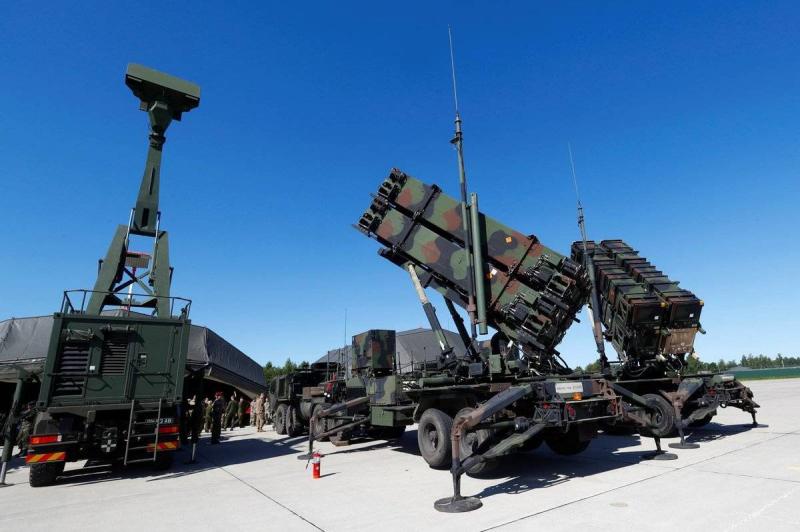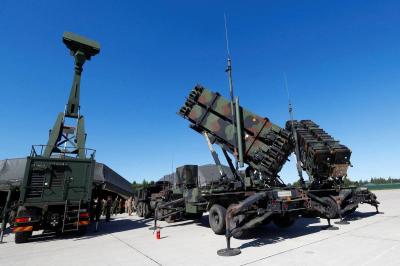The American magazine "Forbes" reported that the decision of the U.S. Congress to equip the Kurdish Peshmerga forces with air defense systems has been welcomed, especially given the recurring attacks on Erbil International Airport. These assaults had occurred even before the current war between Israel and Hamas.
The U.S. report explained that the recently approved "National Defense Authorization Act for 2024" includes a provision regarding the equipping of Peshmerga forces in the Kurdistan Region with air defenses. Such a step is welcomed in the region due to repeated missile and drone attacks from Iran and its supported factions over the past few years, which lacked counter-defense measures.
The report added that the provision in the bill, approved by both the House of Representatives and the Senate on December 14, 2023, is expected to be signed by President Joe Biden and the Secretaries of Defense and State. It states, "Establish a plan of action to equip and train the Iraqi security forces and the Kurdish Peshmerga forces to defend against any missile, rocket, and unmanned system attacks by February 1, 2024, and to implement it within 90 days of its preparation."
The report noted that since the outbreak of the war between Israel and Hamas last October, U.S. forces have faced repeated missile and drone attacks in Iraq and Syria, targeting a U.S. base at Erbil International Airport. It reminded that this airport had previously been subjected to assaults, with the first missile attack occurring in September 2020.
The report considered that many of these attacks aim to demonstrate to the U.S. the capability of these factions to strike their targets, even within the relatively secure borders of the Kurdistan Region, posing a direct threat to U.S. forces. For example, a drone strike hit a U.S. base at the airport on October 26 last, which could have led to significant casualties and damage had it exploded.
Other incidents highlighted include an attack on February 14, 2021, which targeted the airport with a barrage of 14 rockets hitting the base and a nearby residential area, resulting in the death of an American contractor and serious injuries to a civilian who later succumbed to those injuries. Another attack occurred on December 8, with a bomb-laden drone crashing into an unfinished building, likely resulting in a large number of casualties if it had been occupied.
The report pointed out that unlike the neighborhoods surrounding the Green Zone in Baghdad, which have also suffered missile and drone attacks, the areas around Erbil International Airport include many tall buildings, with several currently under construction. Analysts indicated that American soldiers had previously avoided using the "C-RAM" counter-rocket and artillery system during the February 15, 2021, attack on Erbil, fearing collateral damage to nearby civilian buildings.
Furthermore, the report recalled an Iranian missile attack on a residential building on March 12, 2022, which demonstrated Iran's readiness to directly target civilian areas in Kurdistan, as well as its attacks on Iranian Kurdish dissidents in the Koya region, showcasing the precision of Iranian missiles and Tehran’s willingness to engage opposition groups in the region in this manner.
The report argued that these Iranian attacks, among others, clearly illustrated vulnerabilities in the Kurdistan Region. It continued by stating that while U.S. forces at Erbil Airport will continue to secure a defensive point for their base using the C-RAM system, the Kurds require greater air defenses.
It noted that any air defense systems the U.S. agrees to provide to the Kurdistan Region are unlikely to be as advanced as the famous long-range "MIM-104 Patriot" system. The most advanced ground-based air defense system currently in the Iraqi military is the short-range Russian "Pantsir-S1," but Baghdad will likely oppose Kurdistan acquiring any system that exceeds its own capabilities.
Therefore, the report anticipates that the U.S. will equip Kurdistan with short to medium-range systems capable of facing missile and drone attacks from factions, which Kurdistan will undoubtedly possess strictly for defensive purposes. It indicated that Iran would likely protest, having already sought clarifications earlier this year when this armament provision emerged, but it is unlikely Tehran will view the region's possession of these weapons as a strategic threat.
The report concluded by stating that having such systems, along with some shoulder-fired surface-to-air missiles against drones potentially deployed by organizations like ISIS, "will undoubtedly be far better than nothing, and it has been long overdue."




